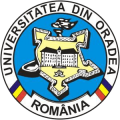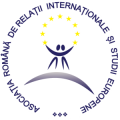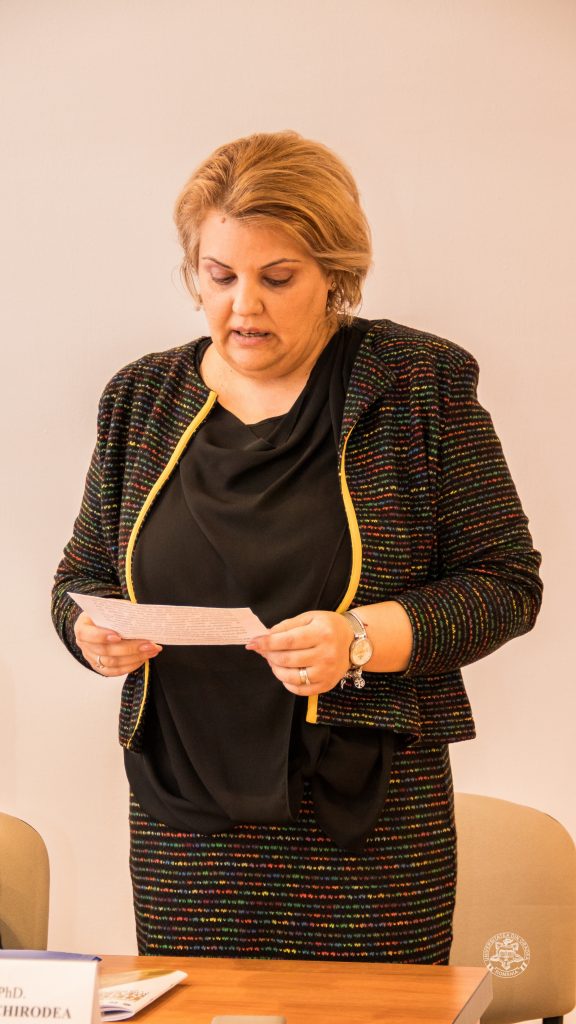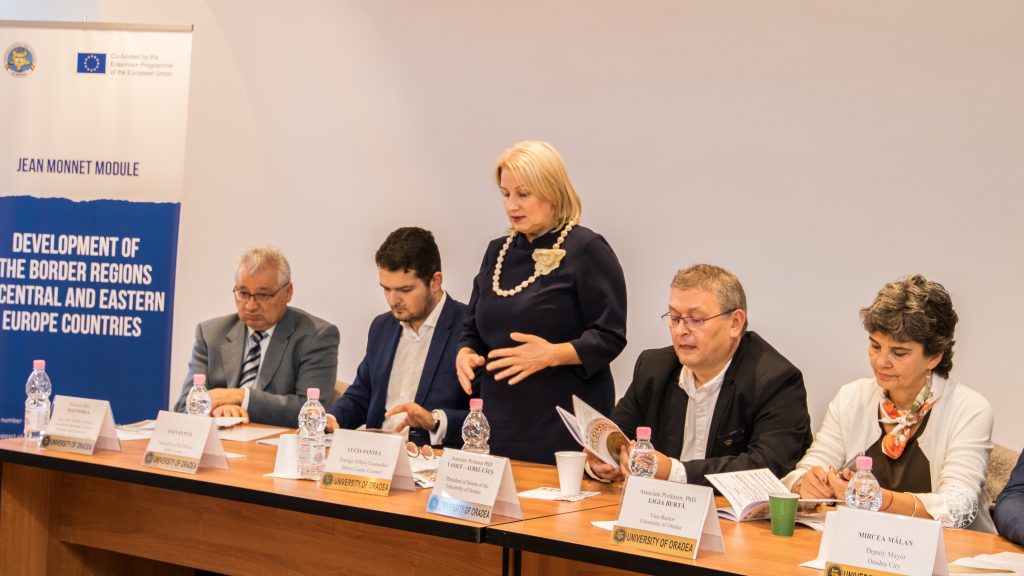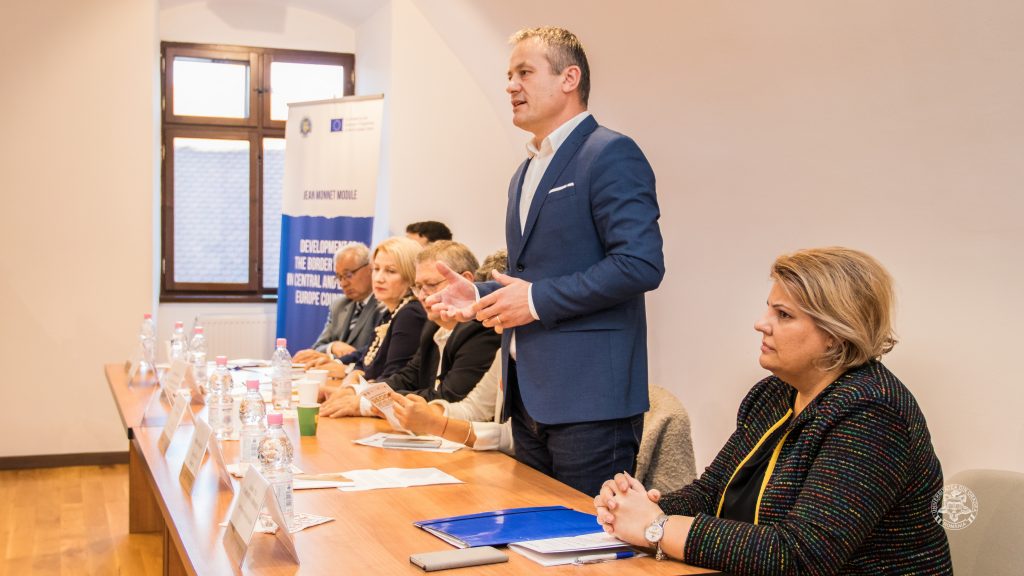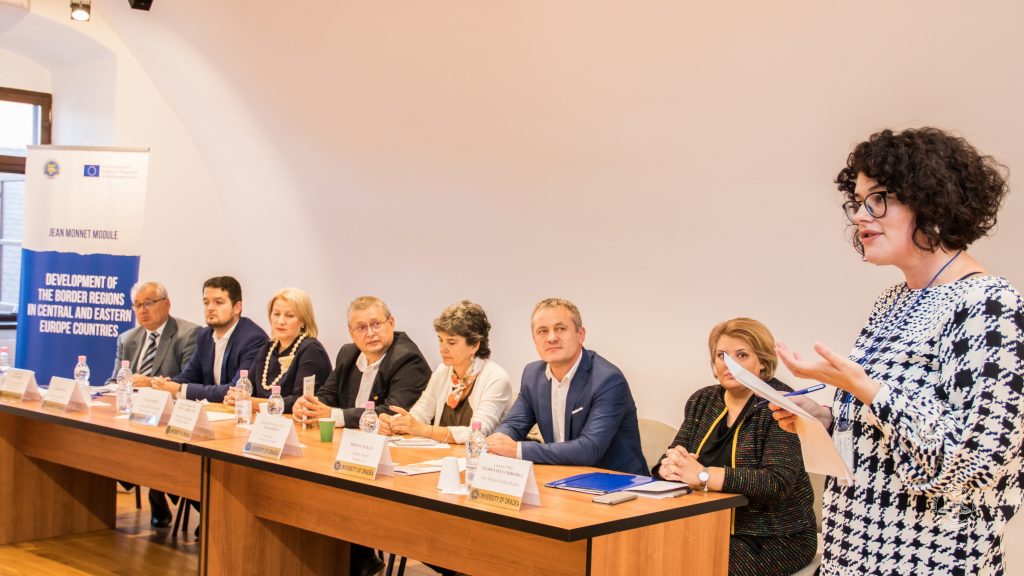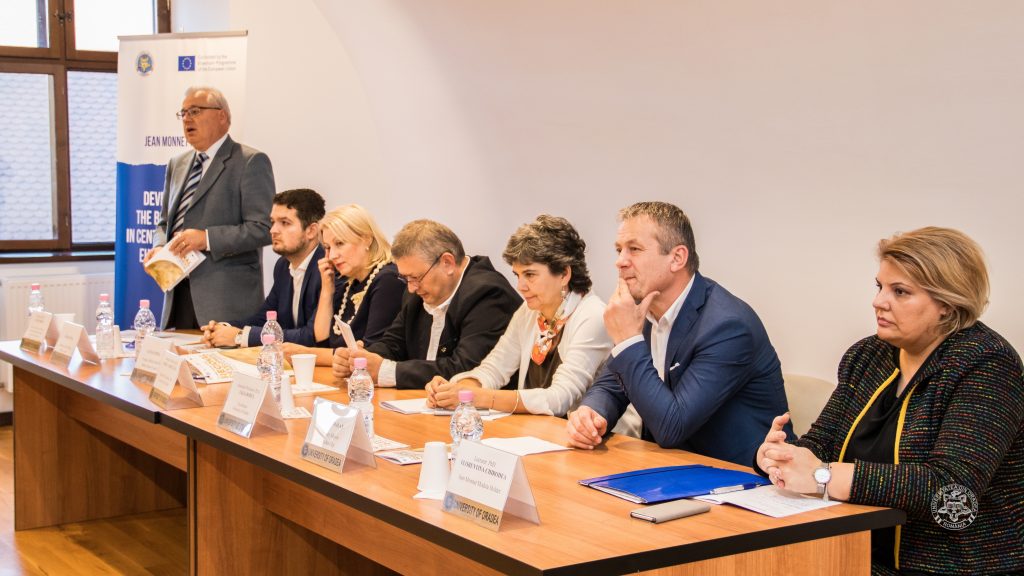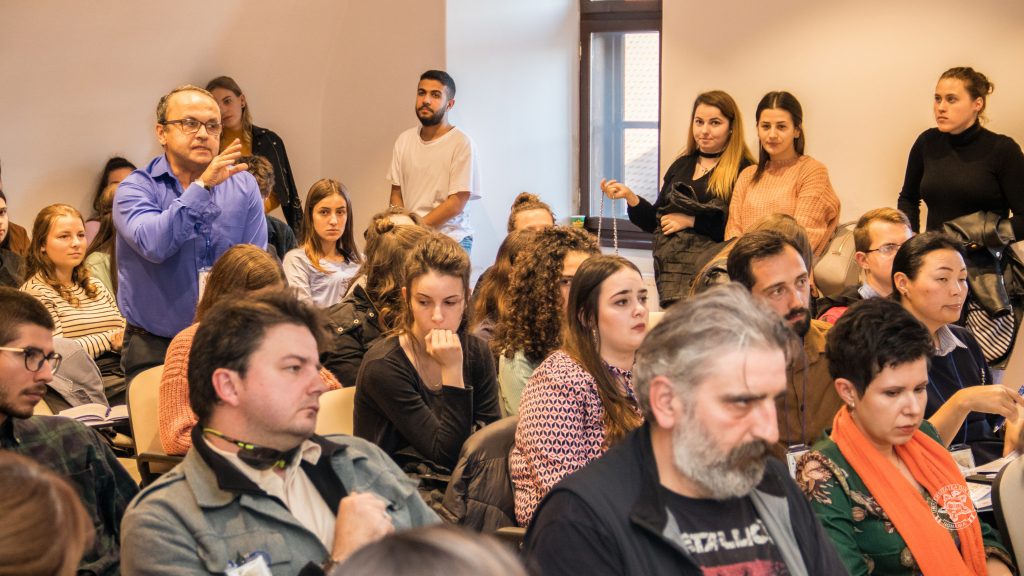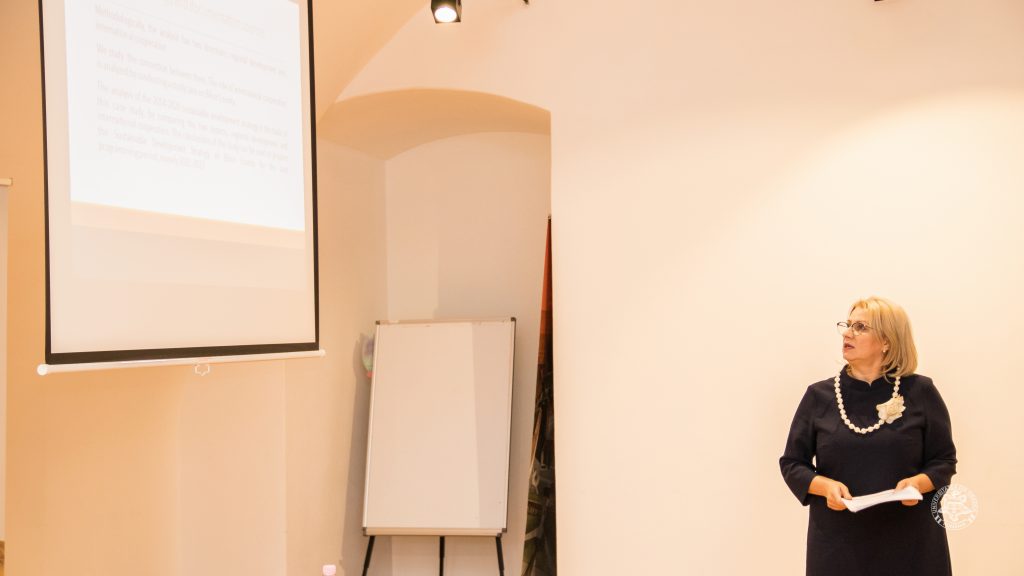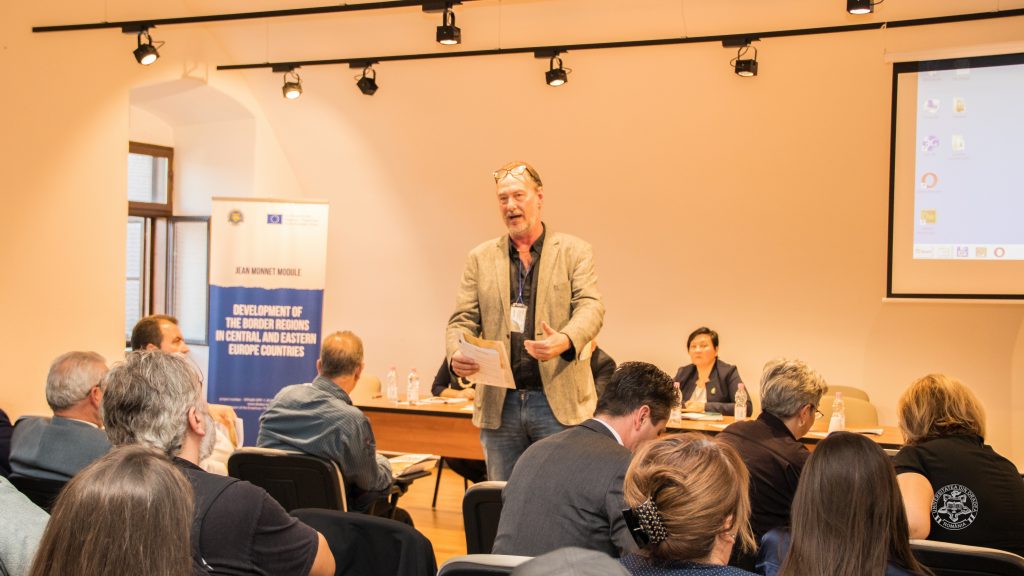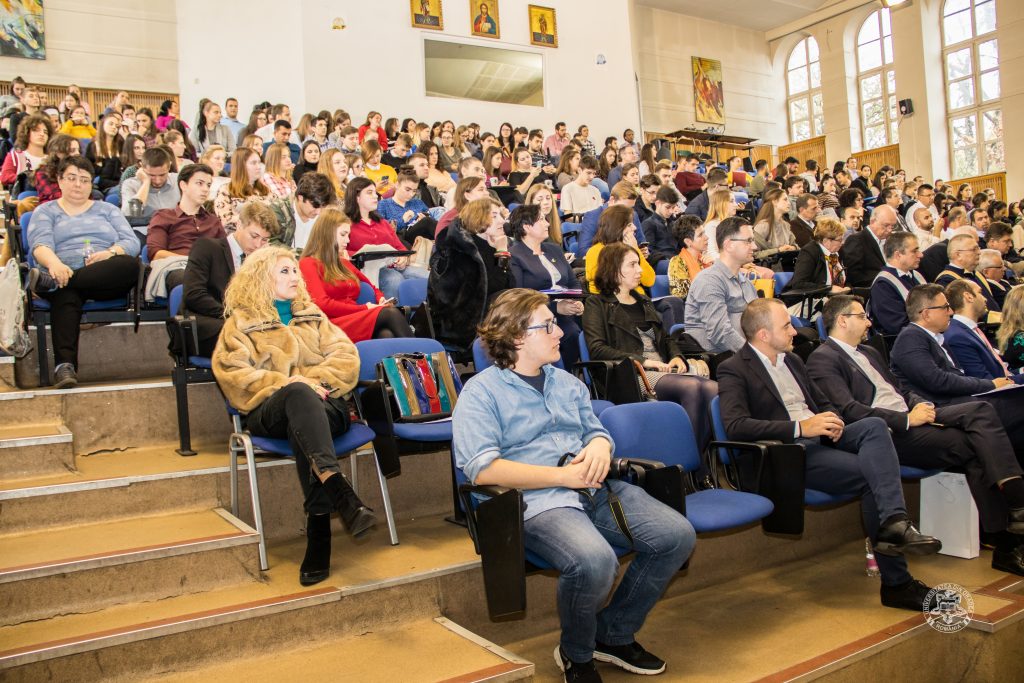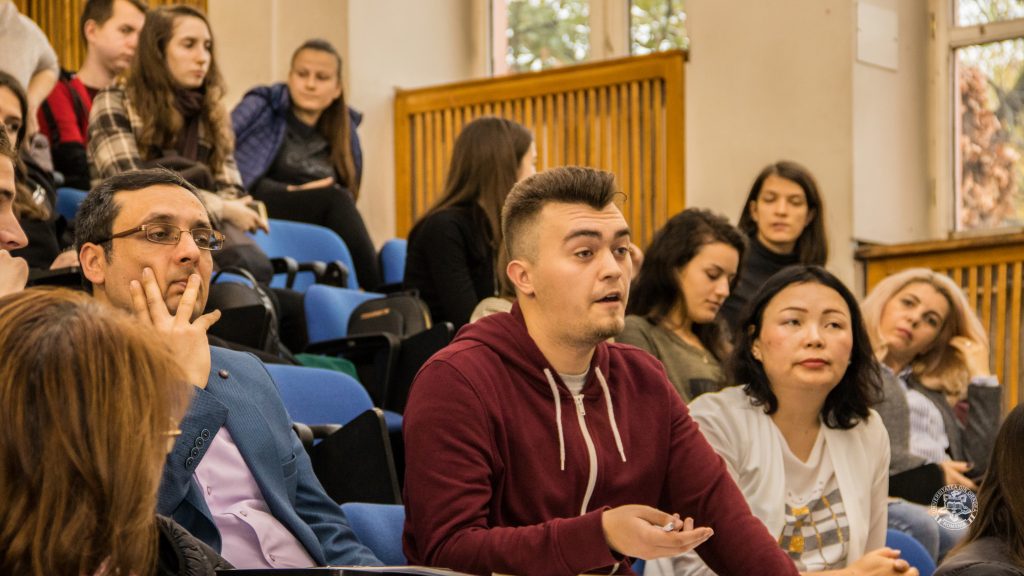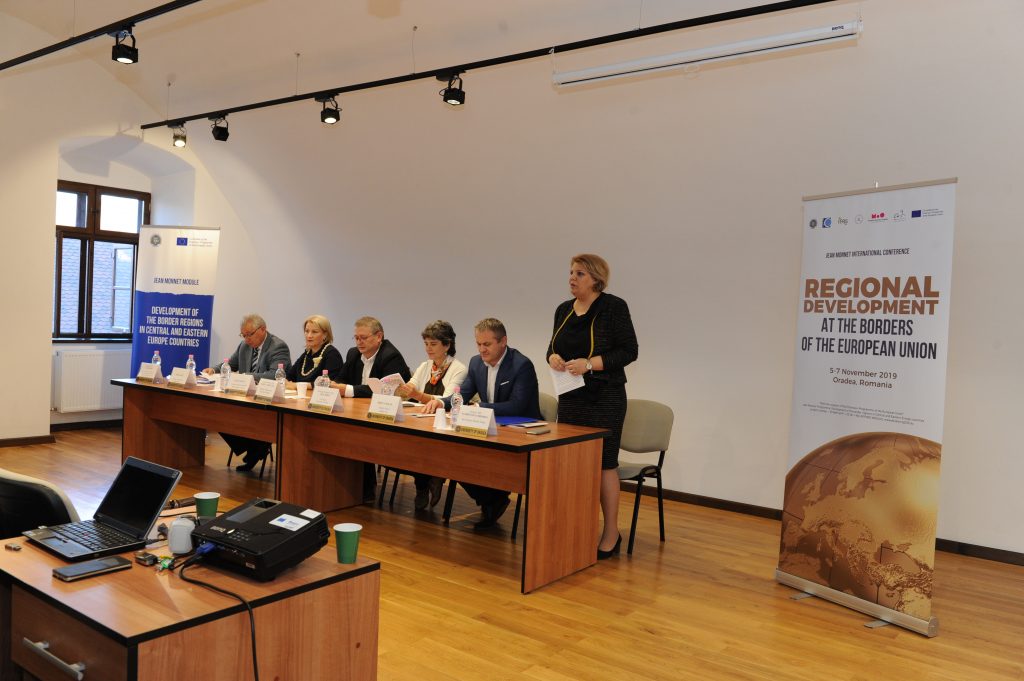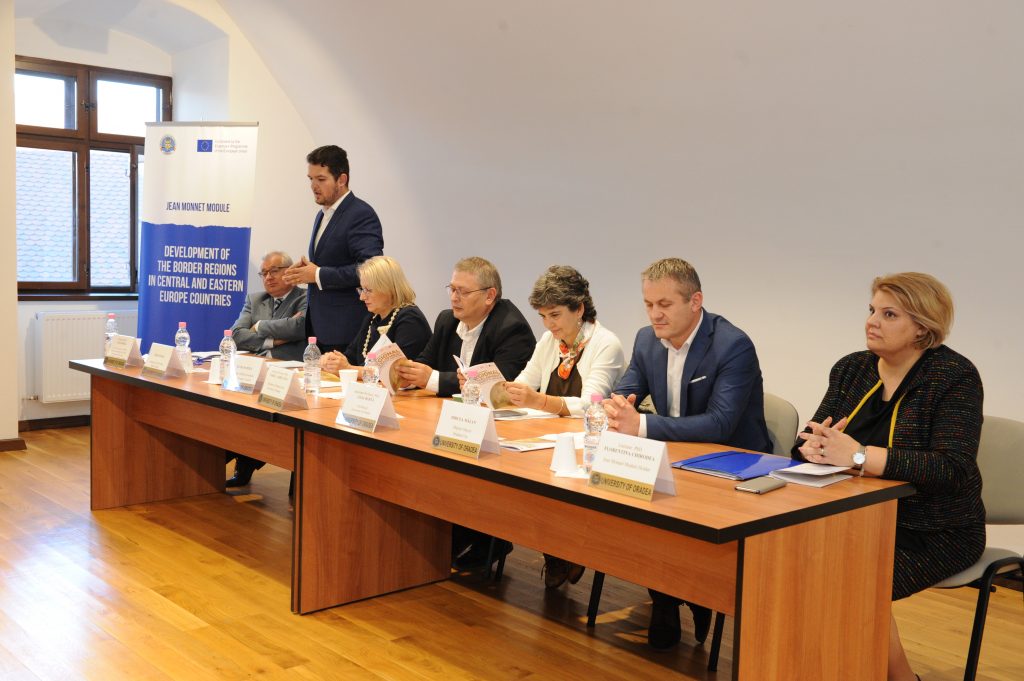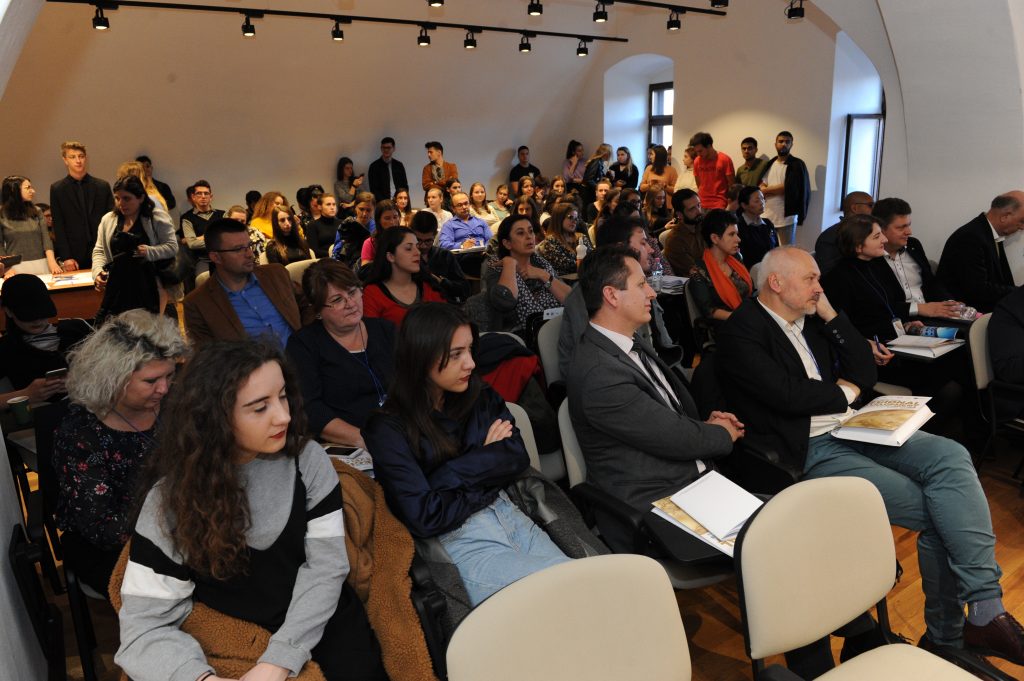November 5-7, 2019, Oradea, Romania
Considering the background of the last enlargement of the European Union to 28 Member States, the development of the areas located close to the internal or external borders is directly influenced by the degree of rigidity or flexibility of boundaries, by the complex realities inside the Member States and also by the opportunities offered by the process of European integration and the smart, inclusive and sustainable growth strategies.
About
Considering the background of the last enlargement of the European Union to 28 Member States, the development of the areas located close to the internal or external borders is directly influenced by the degree of rigidity or flexibility of boundaries, by the complex realities inside the Member States and also by the opportunities offered by the process of European integration and the smart, inclusive and sustainable growth strategies. The actors involved in this process (local public authorities, local community, business environment, civil society, local academics) are all invited to take part in building a regional identity meant to attract investors and highly qualified workforce. For regions located at the borders of the European Union, the specific objective of the regional development – the creation of new jobs, the increase of human capital, competitiveness, economic growth, the improvement of life quality and sustainable development – are especially important given the gap that needs to be recovered. Socio-economic and geopolitical relations in Central and Eastern Europe create a context in which factors and endogenous determiners of regional progress must be carefully identified and instruments of regional policy implementation efficiently used for obtaining outcomes, which will lead to the strengthening of socio-economic cohesion within the European Union.
During the two-day conference, experts, professors, researchers, PhD candidates, post-doc fellows, students, civil society activist, consultants, policy advocates and many more will exchange their interdisciplinary, multidisciplinary and transdisciplinary views upon the modernization and development of the Central and Eastern European border regions, where the historical, socio-economic and geopolitical factors are actively present in the development process, while migration of people and workforce is a severe phenomenon.
Panels:
Panel 1. Regional development: contemporary approaches and future perspectives
This panel is designed to address the region as an economic unit of the global economy, a new growth centre of the world. In this context, we can define regions not just as an ensemble of states, but as areas that represent development poles within different countries. Global economic development will inevitably lead to the withdrawal of the nation-state before the “region–state” (as stated by Kenichi Ohmae), which has the main characteristic “the openness to the outside world,” the rest of the world being just a source of prosperity to it. We are therefore standing before an open economy where important economic decisions are made at a regional level.
These regions represent centres of development for the states to which they belong to, engines that drive the economy of that country towards economic progress. Some regions coincide with the states themselves, while others represent development poles from the inside of a state or common areas of many countries.
Panel 2. Border regions: area of cooperation and good neighbourhoods
This panel aims to find cross-border solutions to improve the quality of life for people in neighbouring communities, to promote sustainable development and reduce discrepancy among border regions. The discussion will be focus on: cross-border cooperation and strategies inside the European Union and between EU and its neighbours, instruments and structures of cross-border cooperation, evaluation of cross-border cooperation.
Panel 3. Development of European Union’s Central and Eastern border regions
The EU’s regional and cohesion policies guarantee intelligent, durable and inclusive growth, by promoting in the same time the EU and its regions’ harmonious development by reducing economic, social, territorial disparities. In the context of the Europe 2030 Strategy and the recent global crisis, this panel is meant to underline the new meanings of the known determining factors of regional development (e.g. the quality of the local business environment, the presence and dynamics of clusters, the existing social relations and networking, the quality and competences of the work force, the presence of an innovative and creative class), and to address the new factors which are identified and catalogued as being „soft” (the efficiency of institutions, technology, innovativeness, entrepreneurship, internationalization, social capital, knowledge infrastructure, culture, demography & migration, quality of place, environment).
Submission and Registration Fees
The abstracts (max. 500 words, followed by 5 keywords) will be submitted for review in electronic MS Word format. Please provide the full names, affiliation and e-mail addresses of all authors. Authors are also asked to send a 100-words biographical note focusing on research activities, scientific interests and previous publications.
Abstracts should be sent until September 15th, 2019 to the Conference coordinator, Florentina Chirodea, at the following address: fchirodea@uoradea.ro
There is no participation fee for the conference.
Travel & Accommodation
Accommodation and meals during the conference will be paid by the organizers. There are no available funds for travel costs.
Social programme
To complement the event, we will organize a social programme, an icebreaker reception, networking dinner and Oradea city tour.
Publication:
The articles will be evaluated by the scientific committee of the conference.
The presented papers will benefit from publication either in:
- the Conference Proceedings Volume, Regional Development at the European Union Borders
- Eurolimes Journal, indexed in international databases (EBSCO, CEEOL, ProQuest, IndexCopernicus), in English or French.
